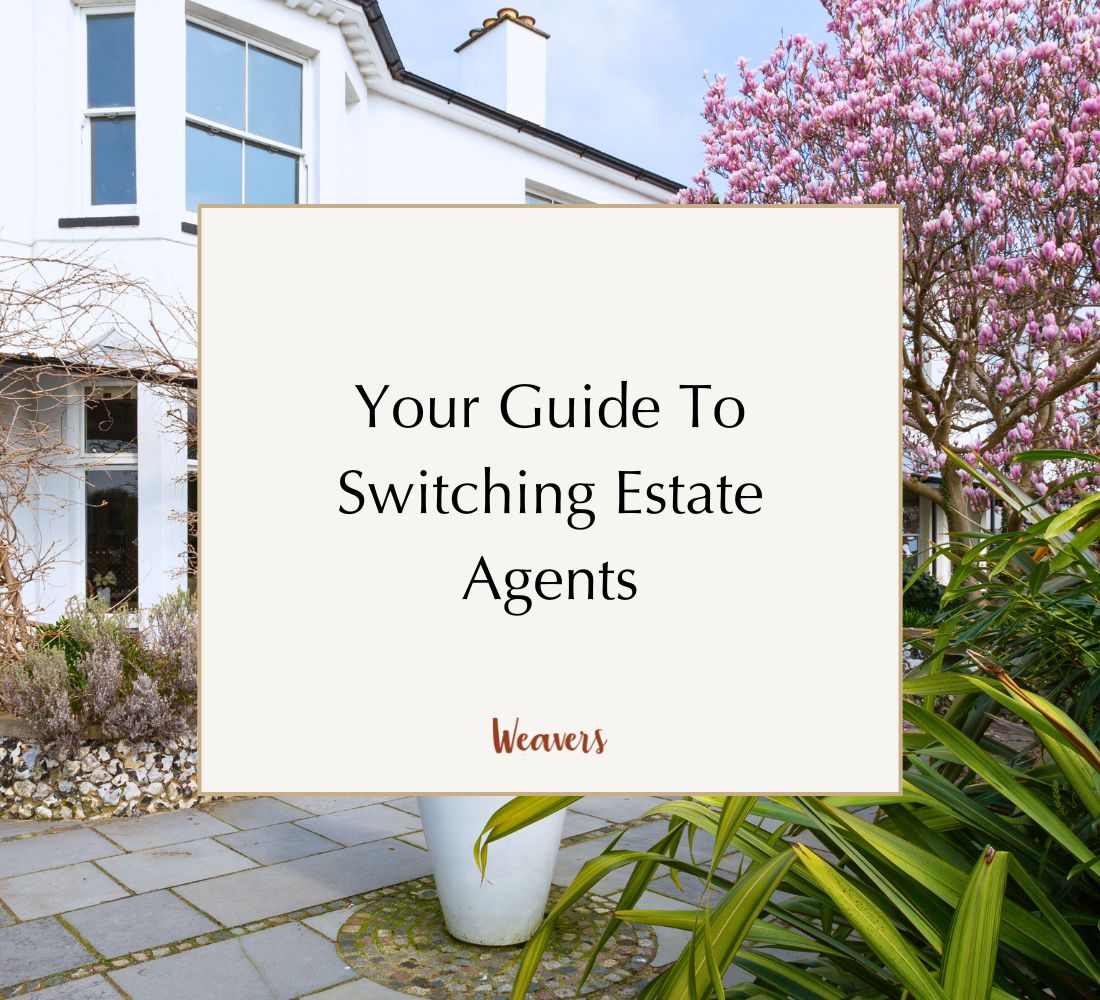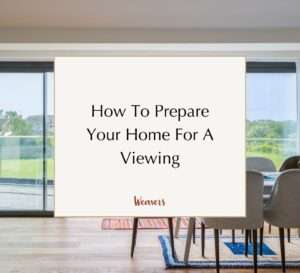Switching Estate Agents: All You Need To Know
Changing estate agents can be a very influential decision in your property-selling journey.
There are several reasons for switching estate agents. If any of the following sounds familiar, you may be considering a change:
Your house isn’t getting viewings or potential buyers
Your current estate agent is pressuring you to drop the price
Your agent is not communicating with you
While there may be other factors at play, having a reliable estate agent is a key factor in a successful experience.
Switching estate agents may be daunting to property sellers or a potential buyer, but can also be crucial to reaching your property goals.
Whether dissatisfied with your current agent’s performance or seeking a more personalised approach, this blog will guide you through the process of changing estate agents.
Use your head, not your heart
Before moving, look at the facts. How many offers and viewings have you had, and over what period of time? Ask your estate agent how this figure compares with similar properties on their books.
Take a look at property portals; are homes like yours getting offers whilst yours remains unsold, or have they remained on the market too?
Ask your estate agent to share your online portal statistics with you. Do they show a steady or declining number of potential buyers while you’ve been on the market?
Your current agent should be able to interpret these statistics for you, explaining their significance and how they relate to your property sale.
Consider other factors that may be contributing to a decline in interest for
your property, such as seasonal changes in the market. For more on this, take a look at our tips for selling your home in the winter.
Once you understand the current state of play, it’s time to check your agent agreement.
Types of estate agent agreements
There are many types of estate agent agreements. Make sure you know the details of your existing contract, so you don’t get yourself into legal hot water by making a change.
Sole agency agreement: As the most common type of contract, the estate agent is the sole agent with the right to sell your home during the term of the contract. However, if you find a buyer yourself, you don’t have to pay the estate agent fees.
Joint sole agency agreement: This means that if you instruct two estate agents to market your home (which we wouldn’t recommend), then the agents would split the commission, regardless of who makes the sale.
Multi-agency agreement: You may have two estate agents marketing your home, but whichever sells it will be due their commission. The other agent is typically due nothing, unless they have a contractual clause stating otherwise.
Sole selling agreement: This is more unusual and essentially means that no matter how you sell your home, or who to, the estate agent can still claim their commission fee.
Fixed fee: You’ve agreed to pay a set amount on the sale of your home, regardless of what you sell it for. Some fixed fee estate agents charge some or all of the fee upfront. If you’ve paid anything upfront, it’s unlikely you’ll be able to get this back if you switch estate agents.
It’s also important to be aware of your tie-in period. Most agent notice periods are 8-12 weeks, but up to 16 weeks is not uncommon.
You’ll need to factor this into your plans when switching estate agents.

Research potential agents
Once you know your rights to switching estate agents, start creating an ‘estate agent shortlist’.
You can check out reviews on Google and Facebook to get an idea of other homeowners’ experiences with potential new agents.
Marketing your property is crucial to consider. Does the branding of the new agent resonate with you? Does the estate agent have a certain property niche or only market bespoke properties?
Do they advertise on all property websites? Do they present their listings well, or do they have overpriced properties simply sitting on the market?
Do they work on a transactional, volume-based model, or do they work with fewer, high-end properties?
Look at their online presence – if they have videos, how do they come across? If they don’t resonate with you over video, it’s unlikely they will in person.
We look more at how to choose the best estate agent in our blog.
Become an 'Undercover agent'
A ‘mystery shop’ exercise is a good way to see how a new estate agent would sell your home if you were listed with them.
Pick a property in your area and call the prospective estate agent. You can ask them to send you details about the home you’ve chosen, then only give them information based on what they ask you.
Consider the following after your interaction to gauge whether they’d be a good estate agent:
- Did they ask for your name and phone number?
- Did they give you their name?
- Did they ask about your buying position?
- Did they offer to register your buying requirements?
- How much did they ask you about your property search?
- How friendly, interested and engaged were they?
- Did they talk positively about the property in question?
- Did they discuss booking a viewing?
- Did they take your email or address?
- Did the details you requested from them arrive speedily?
If they score above an eight, they’re likely to be a good estate agent. If they score lower and are failing to meet your needs as a prospective buyer, this shouldn’t bode well.
If you don’t feel they did a good job of selling the house you asked about, it’s unlikely they’ll do a good job of selling yours.

Invite them into your home
If you’ve reached this stage, there’s a good chance you’re feeling confident this new estate agent can help you.
In this meeting, you should understand:
Their marketing plan:
Do they support your current asking price or are they suggesting a price reduction? Ask what they’d do differently to attract more potential buyers. If another agent is going to advertise your home in the same way as your current agent, there’s no point.
Precedent:
Which other properties has the estate agent sold? Many estate agents will know the average selling time and asking price they’ve achieved for their clients, so ask about this.
Fee:
Typically, the better estate agents will charge a higher fee, especially if their marketing is of a higher quality. If you decide to negotiate, see how easily the agent reduces their fee. How they negotiate with you is how they will negotiate with your buyer.
Conclusion - Switching Estate Agents: All You Need To Know
If the estate agent passes all of these stages with flying colours, you’ve probably found a new selling agent! Hopefully it’s the start of a positive and fruitful relationship – one that’ll see you selling and moving on with your life and plans.
If you’re thinking about switching estate agents, we’d love to hear from you – call us for a chat on 01702 411146, or send us an email at team@weaversestates.co.uk.
Whatever your plans, we’d love to hear from you. Let’s put some time in the diary to find out how we can help you.
If you are happy with your current estate agent but curious about other topics, such as maximising your home’s sale price or the prime property market, we have plenty of insights on our blog page.












